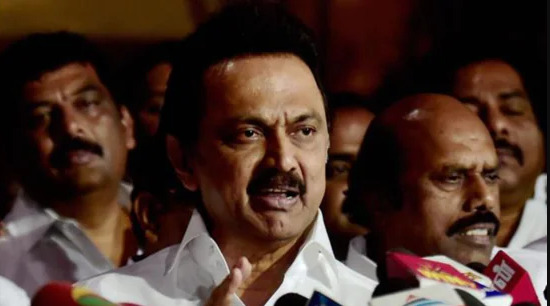The Tamil Nadu government has made NEET optional for the students through a bill passed in the assembly. The bill empowers the medical colleges in Tamil Nadu to admit students on the basis of 12th exam marks.
Although it is very unlikely that the ‘Tamil Nadu Admission to Undergraduate Medical Degree Courses Bill’, which seeks to stop the admission on medical seats of the state on basis of NEET, will get Presidential assent, it is important to analyze its merits and demerits.
The primary argument of the Tamil Nadu government behind this bill is that after NEET, only students of private schools have been getting admission in medical courses while those studying in state government schools were being left behind.
“The state is empowered to regulate medical admission according to the Constitution’s Schedule VIII, List III and Entry 25. As a result of this government’s and other parties’ legal struggle in the state, we scripted history by getting 27% reservation for OBCs in all India quotas. In the NEET issue too, MLAs of all parties should help pass the Bill unanimously to script history in social justice,” said MK Stalin on the bill.
In India, every state follows a different syllabus. Although in recent years there has been an attempt of national-level standardization of at least science and Mathematics books, and many states including Uttar Pradesh (under Yogi government) have adopted NCERT textbooks, but the majority of the states still follow a separate syllabus.
Despite the general consensus among academics that the NCERT syllabus is the best in the country, states like Tamil Nadu have refrained from adopting the same. The question in NEET exams are from NCERT textbooks – although the syllabus of NCERT and Tamil Nadu overlaps more than 80%, many students find it hard to answer the questions when asked according to the NCERT framework.
Most of the students in Indian schools learn through rote learning and that is the major problem – because when the questions are framed differently for the same concepts, they are not able to apply critical thinking and solve them. So, despite the fact that more than 90% of the questions are from the syllabus, the students are not able to solve them, as questions are framed differently.
The second problem with Tamil Nadu is the lack of high-quality Jawahar Navoday Vidyalaya (JNV) like schools for poor and rural background students. Tamil Nadu repeatedly refuses to adopt some of the most beneficial schemes of the central government in the name of ‘Hindi imposition’ or ‘imposition from Delhi’, and the JNV scheme was one of them. The students of the state from poor backgrounds have been paying a hefty price for this attitude and petty politics by the TN government.
Also read: Hindi imposition? PM Modi wins hearts as he speaks in four languages in Varanasi
Another factor that hinders the growth of the students is the Digital Divide. In states like Uttar Pradesh, there have been attempts to provide electronic devices to students to ensure that they attend lectures whenever they want, but Tamil Nadu has made no such attempts despite being a relatively rich state.
Also read: Kamal Hassan calls Hindi a language still in diapers, Swamy responds back with pure savagery
The state government said that the suicide by students – more than 10 NEET aspirants suicide in the last few years with the most recent a few days ago – is due to imposition of NEET. But, the real problem lies with high coaching fees, digital divide, lack of JNV like schools, and adoption of a nationally standardized syllabus, which the government is not willing to address.
Also read: Dear people of Tamil Nadu, No Indian PM has treated your state with such respect in the past
